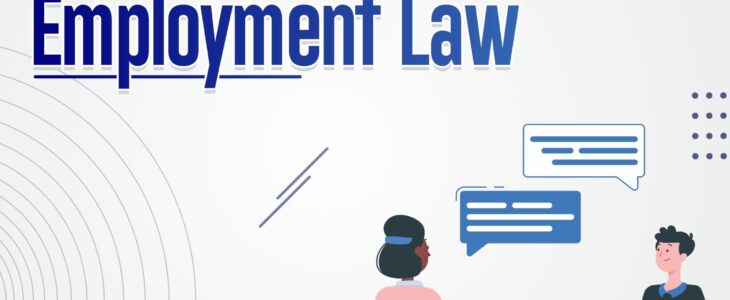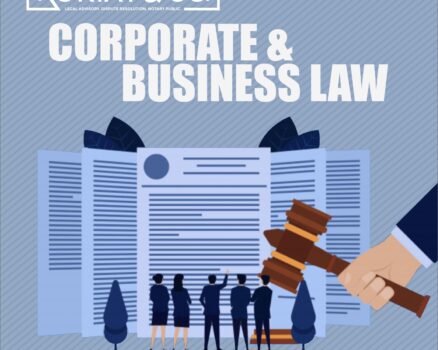
In the world of work, the interests of employees and their employers’ business always clash. Employers have responsibility to protect the business against employees’ misconduct. One sure way to do that is by suspension. However, suspension is a double-edged sword. It can save the business when properly deployed. It may cause the business avoidable loss and distractions if misused.
Below are some questions and answers around suspension of employees in Nigeria. They are not exhaustive but very helpful on the areas they touch.
1. What is Suspension?
Suspension is the placement of an employee on temporary, involuntary deprivation of work for a period of time, usually pending investigation, inquiry, or a management action or decision. Suspension is the temporal withdrawal from employment, as distinguished from permanent severance.
Indefinite suspension is a temporary, involuntary and indeterminate relief of the duties of an employee, for an indefinite period. In cases of indefinite suspension, the suspension letter usually states that the employee is suspended indefinitely or by simply stating that the employee is suspended without stating the recall date.
The Supreme Court held in University of Calabar v Esiaga (1997) 4 NWLR (Pt. 528) 719 SC, where the court stated thus: “The word suspension means a temporary privation or deprivation, stoppage or cessation of or from the right or privileges of a person. The word carries or conveys a temporary or transient disciplinary procedure which keeps away the victim or person disciplined from his regular occupation or calling either for a fixed or terminal period or indefinitely.”
In Akinyanju v. University of Ilorin (2005) 7 NWLR (Pt. 923) 87 at 120, the Court of Appeal stated that “Suspension” means to defer, lay aside, or hold in abeyance, It also means to halt halfway but not to bring to an end or, terminate. Suspension pending investigation can never amount to a breach of his right to fair hearing.”
According to the Court of Appeal in S.P.D.C. (Nig.) Ltd. v. Emehuru (2007) 5 NWLR (Pt. 1027) 347, at page 376, where an employee is placed on suspension, he is placed on hold; he lives day by day in anticipation of either being recalled or being laid off. He is not at liberty to utilize his time elsewhere or as he desires until after closing hours.
Questions often arise as to whether an employer has the right to suspend an employee even where such right is not expressly stated in the employment contract? The simple answer to the above question is in the affirmative. There are several judicial decisions to that effect. See Udemah v Nigerian Coal Corporation (1991) 3 NWLR (Pt. 180) 479 at 486 where the court held that: “The right to suspend an employee is available to an employer to effect proper investigation of allegations and during the process of disciplinary action.”
2. What are the Legal Effects of Indefinite Suspension?
The following are some of the legal effects of indefinite suspension:
a. Temporary Suspension of Duty to Work and other rights, It does not Terminate the Contract of Employment:
The first and most important effect of the suspension of an employee is the temporary suspension of service or duties or rights and privileges of an employee. Suspension does not terminate the contract of employment. See the case of University of Calabar v Esiaga (1997) 4 NWLR (Pt. 528) 719 SC.
So, the contract of employment between the parties still subsists notwithstanding the length of the suspension. Only the suspended employee’s duty to work, rights and privileges are put in abeyance pending the final decision of the employer whether to reinstate the employee to his former position, or summarily dismiss him or terminate the contract by any means stated in the contract of employment.
It is interesting to note that the Supreme Court in the case of Longe v FBN Plc (2010) 6 NWLR (Pt. 1189) 1, took the view that suspension suspends the contract of employment when the Honourable Justice Adekeye (in his lordship’s concurring judgment) stated at page 60 that: “Suspension is a state of affairs which exists while there’s a contract in force between the employer and the employee, but there’s neither work being done in pursuance of it nor remuneration paid. It is neither the termination of the contract nor the dismissal of the employee. It operates to suspend the contract rather than terminate it.”
Suspension is not a reduction of salary or demotion of a worker. Justice Oguntade who delivered the lead judgment in the Longe v. FBN case wherein his lordship held at page 36 that “I think, with respect, that the court below completely misunderstood the import of suspension. Admittedly, an employer suspending his employee may impose terms of the suspension but in a general sense suspension of an employee from work only means the suspension of the employee from performance of the ordinary duties assigned to him by virtue of his office. Suspension is not a demotion and does not entail a diminution of rank, office or position. Certainly, it cannot import a diminution of the rights of the employee given to him under the law.”
b. Suspension Puts in Abeyance the Duty to Work and the Duty to Pay:
Suspension of a worker puts in abeyance the worker’s duty to work and also the employer’s duty to pay him. However, it must be noted that the right to suspend an employee without pay must be expressly agreed in a contract of employment otherwise it will be wrong to suspend without pay (or half pay). Such power cannot be implied into an employment contract.
The Court of Appeal in a very recent Judgement in the case of Globe Motors Holding Ltd v Akinyemi Adegoke Oyewole (2022) JELR 109330, following the decision of the supreme court in Longe v FBN Plc (supra) and also applied by the supreme court in the subsequent case of Bamisile v NJC & Ors. (infra) held thus: “since the suspension is not a termination of the employment contract nor a dismissal of the employee, the implication is that the employee is still in continuous employment of the employer until he is recalled or formally terminated or dismissed. Pending his recall or dismissal, a suspended employee is entitled to his wages or salary during the period of suspension unless the terms of the contract of employment or the letter of the suspension itself are specific that the suspended employer will not be paid salary during the period of the suspension.”
3. Must the Employer Give Reasons for the Suspension of an Employee?
Generally, an employer does NOT have an obligation to give reason for suspension especially where such suspension is not to penalize the employee.
4. Must an Employee be Given Fair Hearing Before Suspension?
The answer to the above question is NO. But where the suspension is to serve as punishment (like suspension without pay), then the employer must give the employee fair hearing. The reason for suspending without fair hearing is the urgency under which the employers act in most cases to detect or stop some wrongdoing in order to avoid further damage(s) from being done to the employer’s business.
5. Can an Employee be Suspended Indefinitely without Pay?
First, indefinite suspension may be unlawful if it is too long. What will be too long is a matter of fact to be decided by the judge. For instance, where an employee’s service can be terminated by one month’s notice and the allegation to be investigated (which led to his suspension) can be completed within one month, suspension beyond one month may be too long and therefore unlawful.
Please note that courts have held indefinite suspension to be constructive dismissal and wrongful termination.
Suspension from work without pay (unpaid suspension) is a disciplinary measure taken by employers typically to punish an employee for misconduct, such as theft, unsafe work behavior, or company policy violations. In order to do so, the employer must be sure such power is expressly provided in the contract. Also, it is required that the employer provides the employee fair hearing and finds him culpable before imposing such a penalty otherwise the employer’s action will be unlawful.
In Atoki v. Ecobank Nig. Ltd. (2014) 47 N.L.L.R. (Pt. 151) 33, the NICN remarked that: “An employer has the right to suspend an employee whenever necessary with or without pay. However, employers cannot suspend without pay where there is no express or contractual right to do so.”
The rationale for allowing suspension without pay is that in suspending an employee without pay the employer has taken it upon itself (in its own wisdom and judgment) to assess its own damages for the employee’s misconduct at the sum which would be represented by the wages of the employee for the period in which he remains suspended. The same conclusion was reached in Shell Development Company (Nig.) Ltd. v. Omu (1998) 9 NWLR (Pt. 567) 672.
6. What is the Legal Status of a Suspended Employee?
A suspended employee remains an employee of the suspending employer and unless the unpaid salaries are justifiably denied as penalty for misconduct, all outstanding salaries must be paid to the employee upon recall. This position is buttressed by the National Industrial Court of Nigeria in Duru v. Skye Bank Plc (2015) 59 NLLR (Pt. 207) 680 at P. 731, Paras. E-B, when it held that: “During the period of suspension of an employee, the employment is neither terminated nor dismissed. Rather, it is merely put on hold to enable the employer properly carry out its investigations on its allegations against the employee. For the period of the employee’s indefinite suspension without pay, he is still in the employ of the employer and so is entitled to his salaries and allowances.”
In Ekpeogu v. Ashaka Cement Coy (1997) 6 NWLR (pt. 508) 280, the Appellant was suspended indefinitely without pay on allegation of stealing the Respondent’s property and charged to court, he was subsequently discharged and acquitted and he brought an action for his recall which was not granted. On appeal though the Court of Appeal acknowledged the fact that he ought to have been recalled after his acquittal as the notice of suspension cannot metamorphose into a notice of termination nevertheless held that the employment was terminated although wrongfully. The court awarded damages rather than ordering reinstatement.
7. Can the Court Order the Reinstatement of a Wrongfully Suspended Employee?
If the employment relationship is statutorily flavoured, then yes, the court can order reinstatement. Statutorily flavoured employment contracts are usually with Federal and State universities, Government Hospitals, agencies or parastatals established by law. The employment contracts in the oil and gas sector and financial sector have also been held to be statutorily flavoured and therefore aggrieved employees can be reinstated to their lost jobs or get equivalent salaries as compensation for the loss of earnings.
The Supreme court in Gov. Of Kwara State v Ojibara (2006) 18 NWLR (Pt. 1012) 645, stated that: “Reinstatement involves putting the specified person back in law and fact in the same position as he occupied in the undertaking before the employer terminated his employment.”
The court can order the reinstatement of a wrongfully suspended employee but for this to happen, the employment relationship must be with statutory flavour. The court in Odibo vs First Bank Plc (2018) LCN 12072 CA, stated thus: “In law, employment founded on master-servant relationship for personal service without any statutory flavour does not enjoy the relief of reinstatement. The courts are thus very reluctant and lack the competence to force a willing servant upon an unwilling master in a contract of employment of personal service”.




